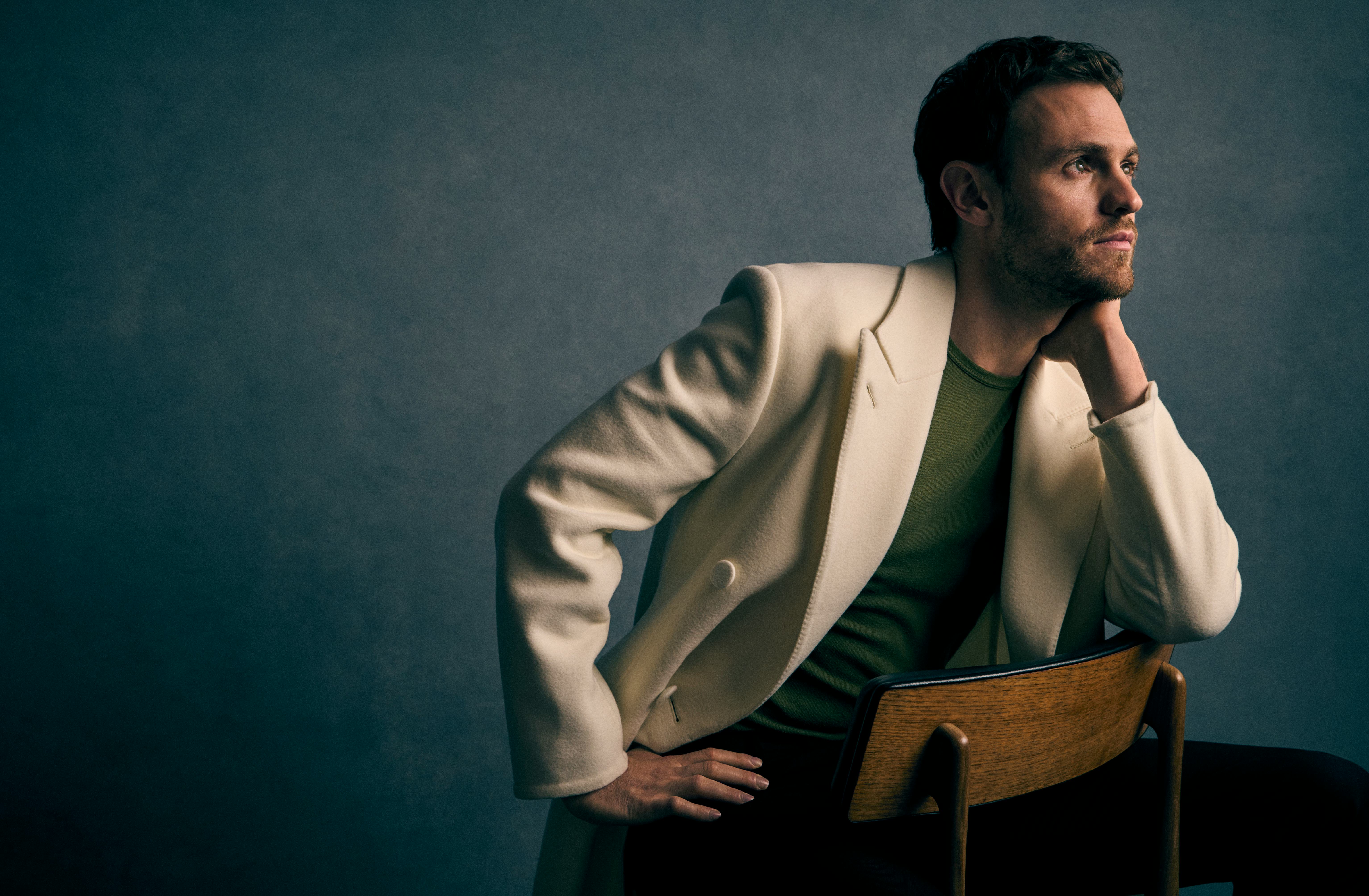
Charlie Vickers had a hunch. The then-27-year-old Australian actor had his suspicions that the mysterious human character he was playing on Amazon’s ambitious new Lord of the Rings series, The Rings of Power, was actually Sauron. The series, after all, had been billed as a prequel following the forging of the Rings of Power during Middle-earth’s Second Age — the era characterized by Sauron’s rise to power and his reign of terror that would only be ended by the War of the Last Alliance.
“You go through the cast list, and when you looked at the time period that this show would be set in, you knew that Sauron was going to be there,” Vickers tells Inverse. “So we thought he must be somewhere in disguise.”
Vickers and the rest of the cast put their heads together and narrowed down their list of suspects. At the top of that list was Halbrand, the Southlands refugee played by Vickers, who was a brand-new character invented for the show. But as much as the cast pestered showrunners J.D. Payne and Patrick McKay, “they wouldn’t give anything away,” Vickers ruefully recounts.
That left Vickers to perform his first scenes in the show, in which “Halbrand” and a group of shipwreck survivors clinging to a raft rescue Galadriel (Morfydd Clark) from the sea, without knowing whether Halbrand was really just a Man, or Sauron in disguise. “When I was doing the raft scenes, I had no idea,” Vickers says. “I think maybe subconsciously I was playing a little bit of, ‘There might be more than meets the eye to this character.’”
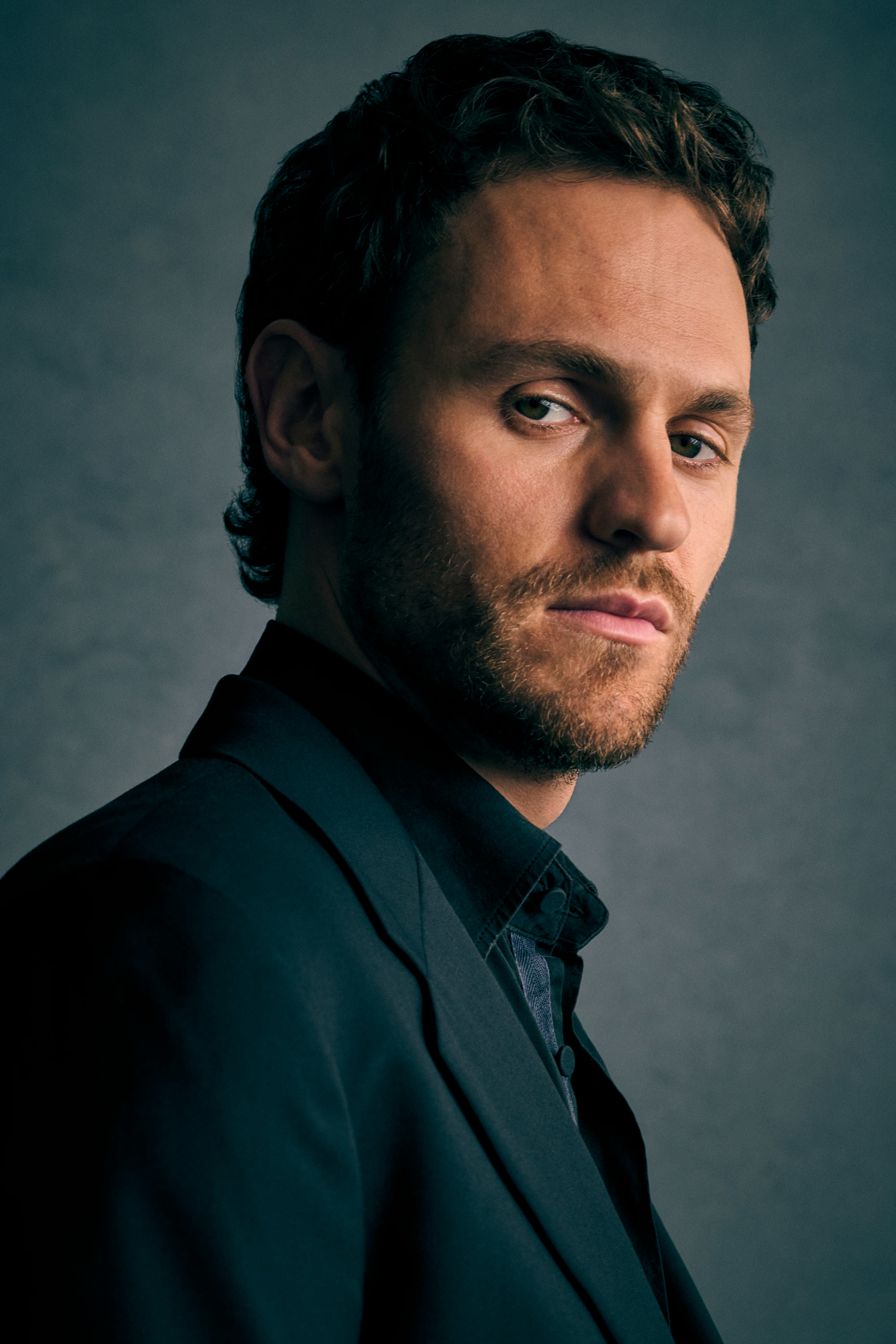
Vickers has proven there’s certainly more than meets the eye to him with his major transformation as Annatar (the guise that Sauron puts on to aid Charles Edwards’ Celebrimbor in the forging of the Rings of Power) in Season 2. Vickers trades Halbrand’s long, wavy hair for pin-straight blonde locks that fall down his back. His ears are the sleek, pointed ears of an elf. And his natural green eyes are lightened to an eerie, incandescent blue (with the help of contact lenses). It’s a total metamorphosis that bled into his performance as well — Vickers as Annatar is cold, chilly, and a touch psychotic, compared to his sardonic, salt-of-the-earth Halbrand. It’s the kind of meaty performance that Vickers only dreamed of when he graduated from London’s Royal Central School of Speech and Drama six years ago.
“They always tell you when you're finishing drama school, ‘You're going to play characters that are really close to yourself when you leave, if you're lucky enough to get any work at all,’" Vickers says. “That was kind of what happened for me a little bit.”
“The stillness that kind gives him this sense of power and weight that you maybe don't see with Halbrand, because he's … more human.”
The handful of roles he landed after graduating very much fulfilled that statement: supporting roles in the historical drama Medici and the Prime Video series The Lost Flowers of Alice Hart were young heartthrobs who shared his sandy hair and dark gaze. And at first, that’s what Halbrand seemed like — his appearance wasn’t too far from Vickers’ own, with Vickers having grown out his hair to play out the apparent exiled warrior-king. Halbrand was “earthy,” Vickers says. Compared to that, Annatar, Vickers’ main role in Season 2, is full of “stillness,” Vickers says. “The stillness that kind gives him this sense of power and weight that you maybe don't see with Halbrand, because he's … more human.”
Vickers reveled in getting to play the full-blown villain, manipulating the Elves from the shadows and forcing them to the brink of war, leading to Season 2’s climactic battle. But any actor would be anxious about portraying one of the most famous villains in literature.
“It's funny because I was really excited, but obviously a little bit intimidated,” Vickers says. “Just by nature of the character, it's so integral to this show. In order for the show to be good, Sauron has to be good. I think that that is just part and parcel of: he is the Lord of the Rings.”
Before the Rings
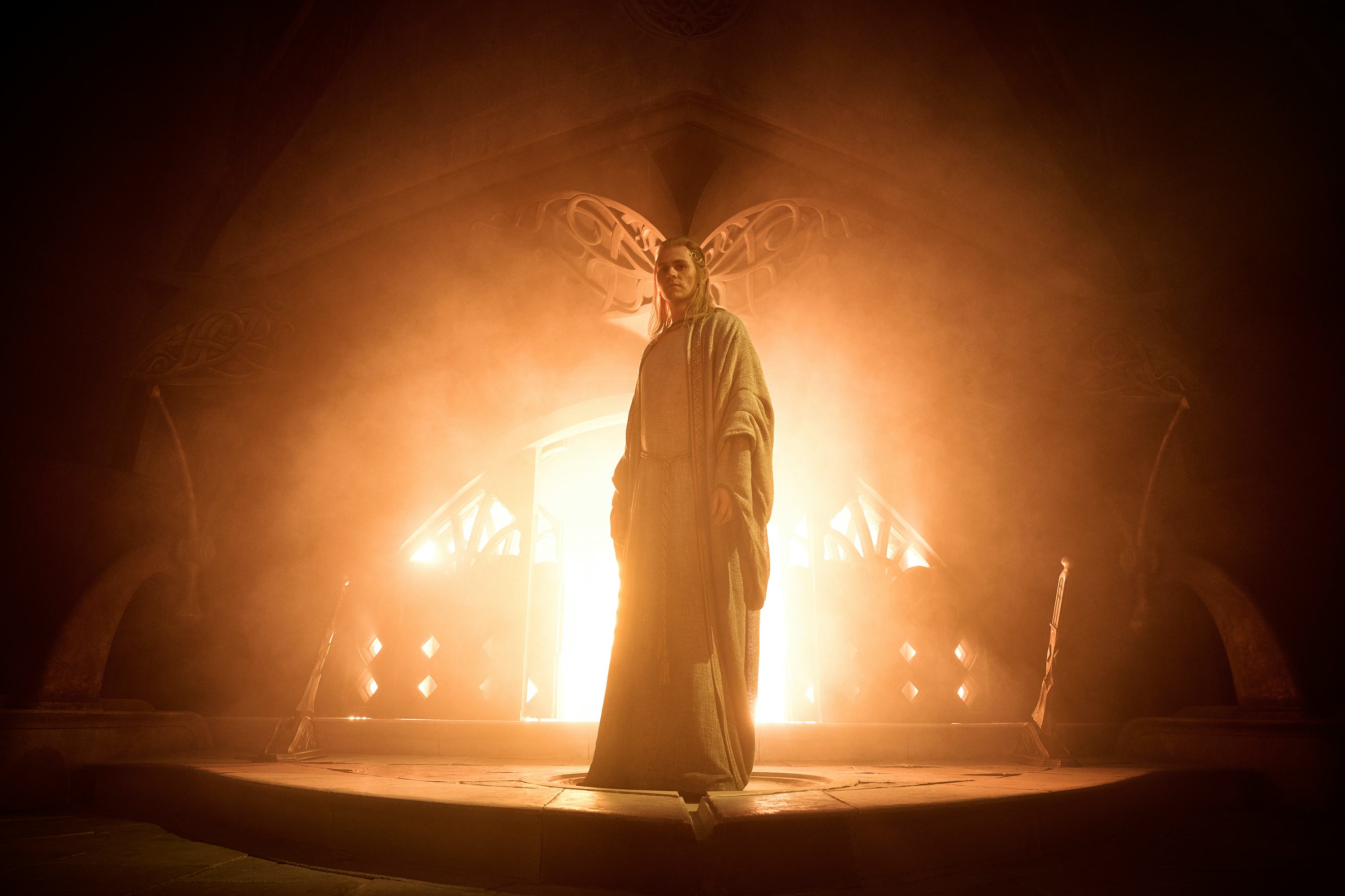
When Vickers auditioned for The Rings of Power, he didn’t even know who he would be playing. “I think I did seven auditions, maybe eight, and all the character name is a pseudonym, all the sides [were] fake scenes.”
The audition process for Rings of Power lasted almost six months, and included screen tests with Moryfdd Clark, who also had no idea who she was playing. But even when he was called in for those screen tests, he was skeptical that he would land the part. “Until you get that call, you don't want to fully believe it,” he says. “When you are auditioning for a role like this, sometimes you're up against hundreds and hundreds of other actors that have been chosen from a pool of thousands of actors that are probably submitted for these roles. You know that the odds are against you. It's a huge privilege to even just be able to audition.”
In the time between auditioning and waiting for his agent’s call, Vickers was filled with “so much anxiety” that he lost sleep. On the day that exhaustion took hold and he slept in, he actually missed his agent’s call telling him the news: he got the part.
“It was such an impending life-changing thing,” Vickers says. “When I was finally told, it was actually really anticlimactic.”
Vickers packed his bags and headed to New Zealand. It was only when he arrived that he was told he was playing a character named Halbrand. So then he dove into researching Middle-earth lore and Tolkien’s legendarium, from which Rings of Power was taking inspiration (though mostly from Tolkien’s annotations). Playing an original character in Tolkien’s world was an exciting prospect for Vickers, who “wanted to make him fit in the kind Tolkienian world,” he says. A large part of his preparation for the role was “trying to read as much as I could to try and help myself understand how this original character fit in with all these canon characters,” Vickers says. “But turns out that joke was on me! He was actually a canon character all along.”
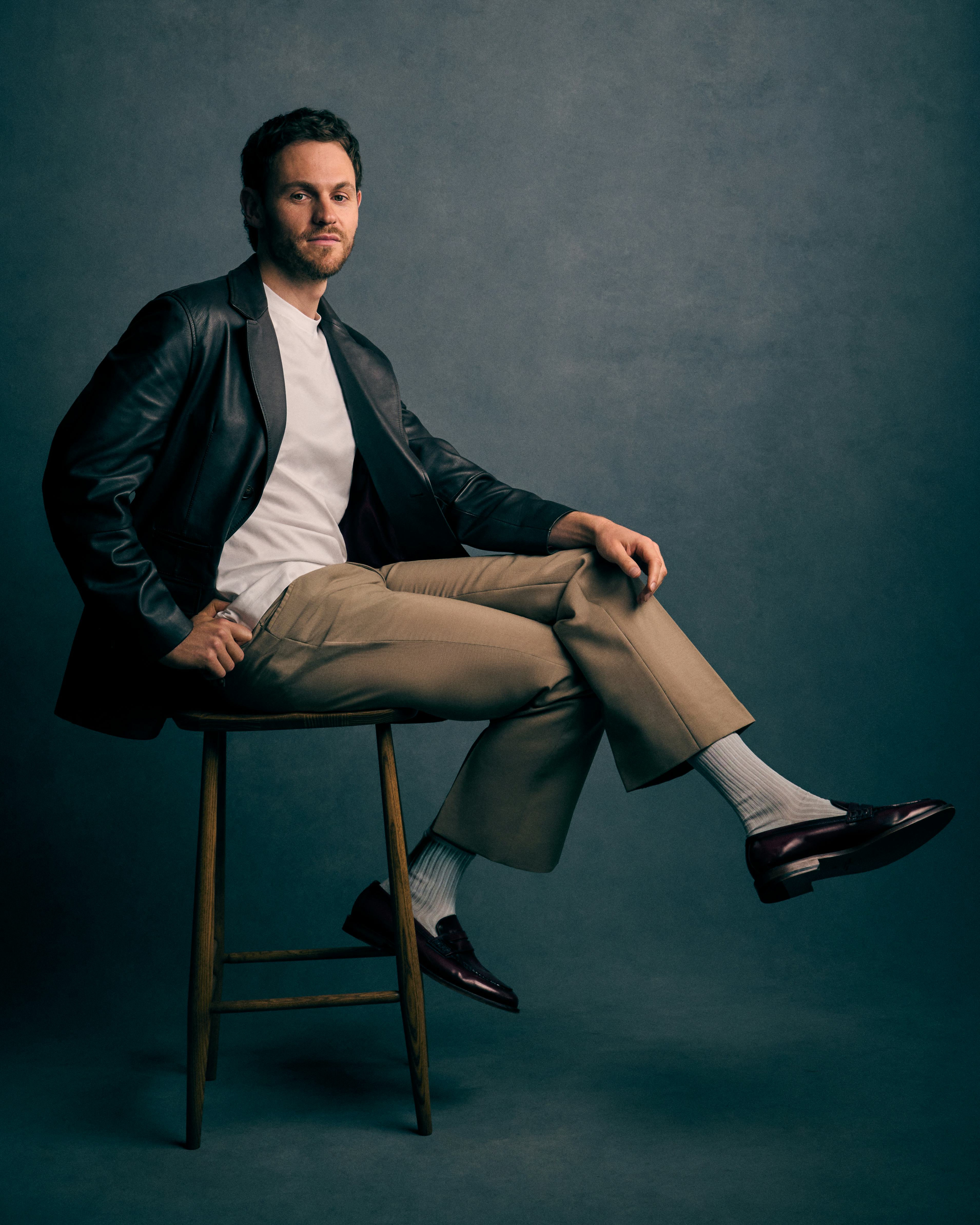
Vickers remembers the moment that the showrunners told him the truth of Halbrand’s identity. The show’s production had been put on hiatus because of COVID, and he and a few others had chosen to stay in New Zealand. Two months before they were due to restart filming, which would’ve been for the third episode of the first season, the showrunners called him into their office.
“They were very excited to tell me, I think, because they could finally get it off their chest,” Vickers recalls. “They invited me into this set and then they said, ‘This is your lair.’ That was really cool, really.”
“They invited me into this set and then they said, ‘This is your lair.’ That was really cool, really.”
But thanks to his longtime suspicions, Vickers was prepared: “I had already collated all these documents of research about Sauron just in case, by that point.”
He adds, “Luckily, I felt very ready, and then comes this second season, doing the Annatar thing, I did feel like I really knew the character.”
The Titular Lord of the Rings
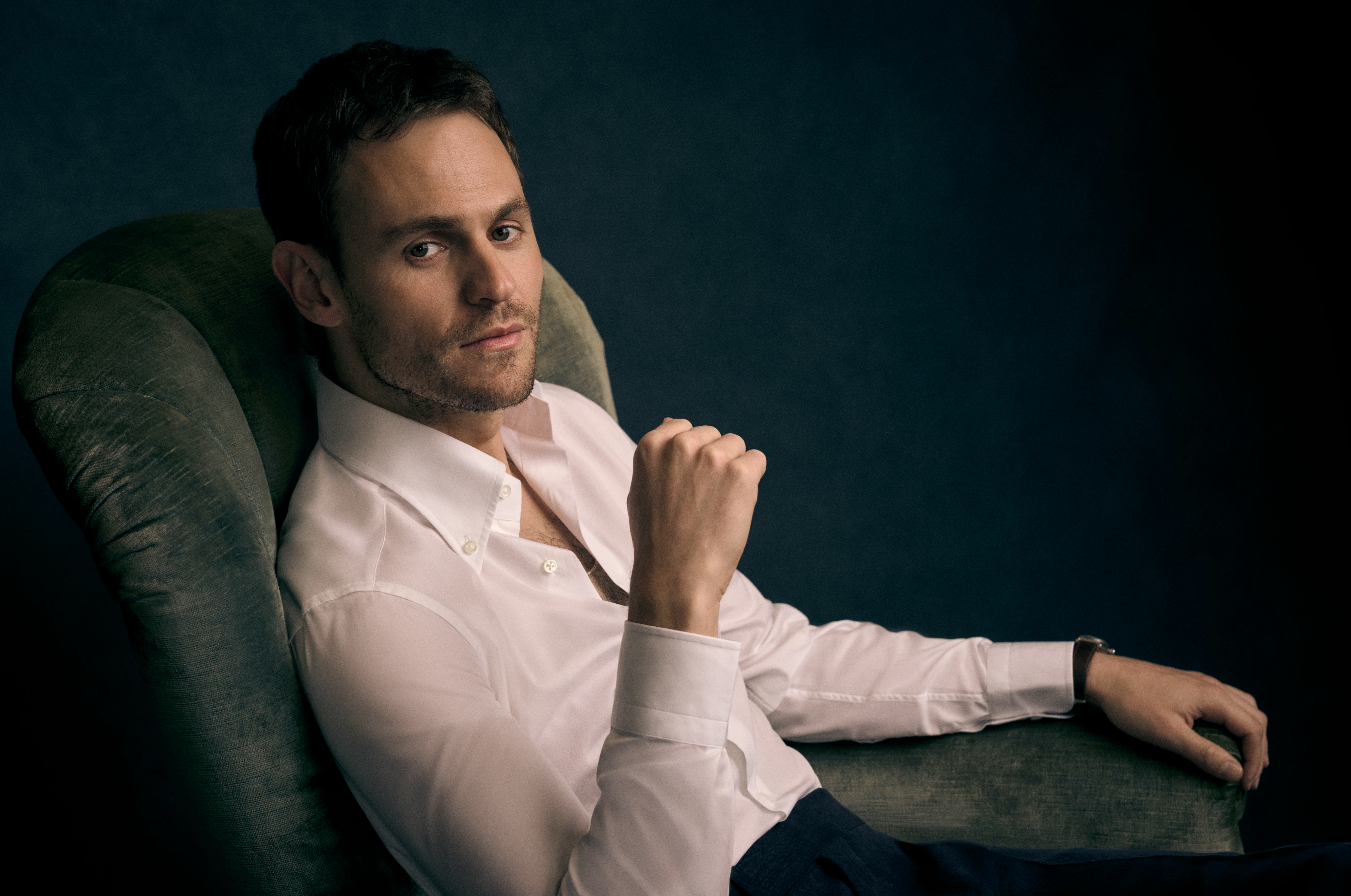
When speaking to Vickers, it quickly becomes clear that he was not joking about those documents of research on Sauron. In my previous interviews with the cast, he and Charles Edwards consistently came across as the biggest Tolkien scholars, with Vickers dropping chapter names like Akallabêth, or quoting directly from Tolkien’s books. So he’s excited when I start to ask him about Rings of Power’s interpretation of Sauron’s repentance, particularly in the opening episode of Season 2, when we see another version of Sauron (played by Jack Lowden) killed by Adar and the orcs at the dawn of the Second Age.
“It is this part of Sauron's history where he's brought low,” Vickers says. “I think it was their interpretation of him having to kneel. Tolkien writes of him kneeling before the Valar and repenting, and sort of saying he's sorry. He's at his lowest point in thousands of years.”
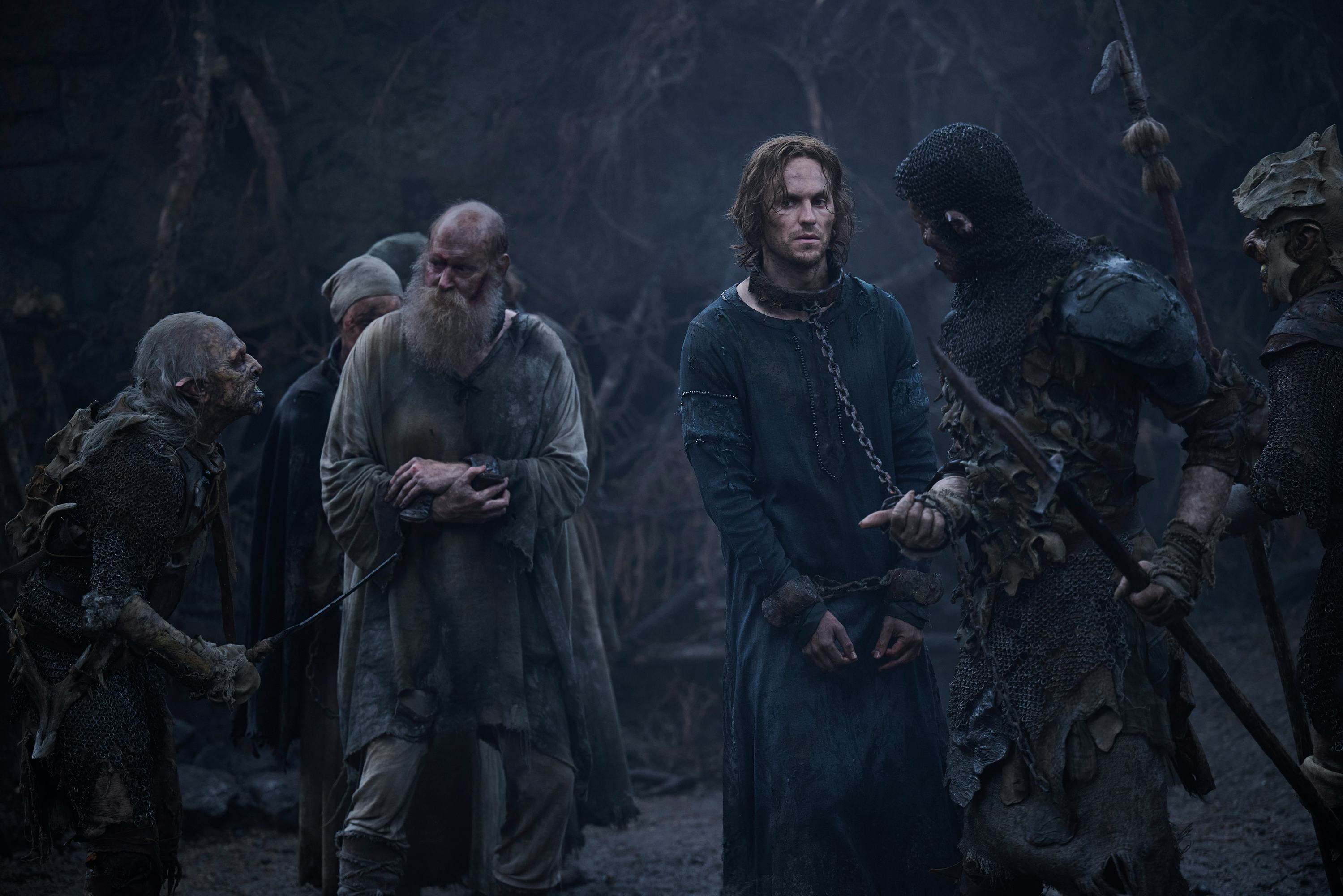
This extended flashback is what leads to the introduction of the earliest iteration of Vickers’ Sauron (whom Vickers interestingly still refers to as “Halbrand”), who finally takes on physical form after slinking around as a pile of black goo for thousands of years. After consuming a human traveler, he steps out of the back of a cart, looking like the Halbrand of Season 1, and lets out a shaky sigh. “I wanted it to feel like this huge overwhelming relief that he is breathing the air again or like he has a physical form after such a long time,” Vickers says. “That was kind of the real exploration that we wanted to dive into … not only working out how to deal with this new physical form, but how he comes to grips with all these huge horrendous atrocities that he's committed in the past. He's at a crossroads in his existence.”
“Either that he is repentant, and he is being truly open with her, or… maybe he's bad.”
Does that crossroad continue as he meets and befriends Galadriel in Season 1? Or does her bloodlust for revenge against Sauron actually lead him back on the path to darkness? “They're questions that I've gone over in my mind a lot,” Vickers admits. “I like the ambiguity of it in that there are points where you can watch scenes and you can read them both ways. Either that he is repentant, and he is being truly open with her, or… maybe he's bad. The way I had to approach it as an actor was to be wholly genuine in everything I was doing, because that's the ultimate deception, right?”
With Galadriel, Vickers thinks that there is a genuine “openness or vulnerability” that Halbrand shows toward her — though whether it’s all part of Sauron’s scheme (at this point, Vickers mimes a classic evil laugh for me) is another question. Take their long-awaited confrontation at the end of Season 2, for example: as they fight, Galadriel accuses Halbrand of being another one of Sauron’s illusions. “Not all of it,” he responds, his accent temporarily taking on the Northern lilt Vickers used as Halbrand, rather than the proper English accent he spoke in as Annatar. Was that intentional? I ask him.
“I don't think it was intentional, to be honest, but I did notice that as well,” Vickers says, coyly. “Maybe that was a detail that I did in one take and they chose to leave in there.”
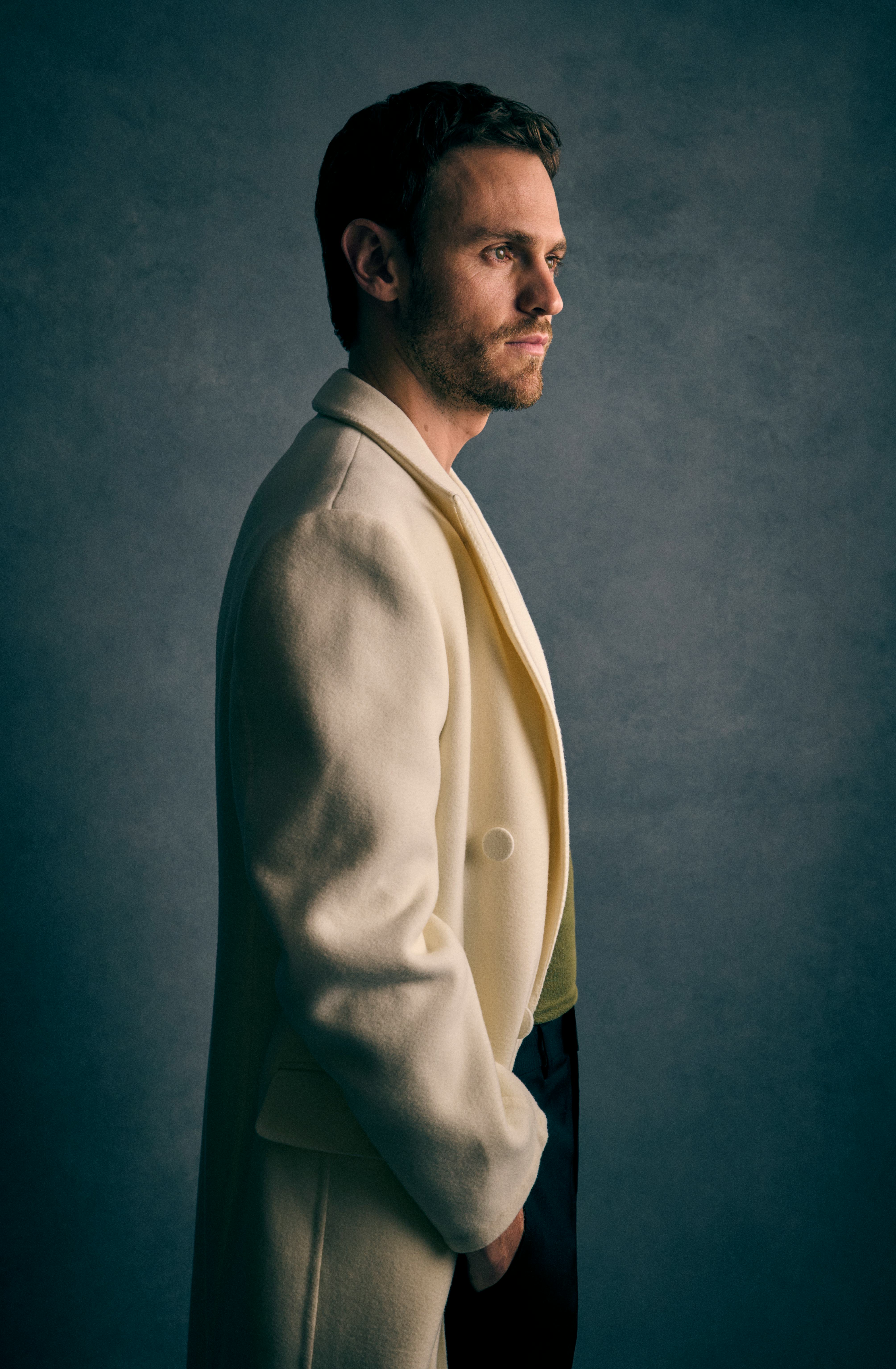
But Vickers, getting serious, says, “I think they are one in the same being. Halbrand is Annatar, Annatar is Halbrand. Who knows where it's going to go in the future, but they are both wrapped up in the one character. Ultimately I think in that moment he is trying to get through to Galadriel, because he's having one last crack at it.”
“I think they are one in the same being. Halbrand is Annatar, Annatar is Halbrand.”
After decades of Sauron being presented as this Great Evil — so evil that he doesn’t even have a human body in other adaptations of Lord of the Rings — it’s refreshing to see these shades of ambiguity in Rings of Power’s villain. Galadriel is not the only one to get under his skin — Charles Edwards’ Celebrimbor does as well, telling him before Sauron brutally murders him: "You are the great deceiver, you deceive even yourself."
“He had this real sense of connection with Celebrimbor,” Vickers says. “He couldn't get over the fact that what Celebrimbor is saying is ringing true, that he's a prisoner.”
The Tides of Fate Are Flowing
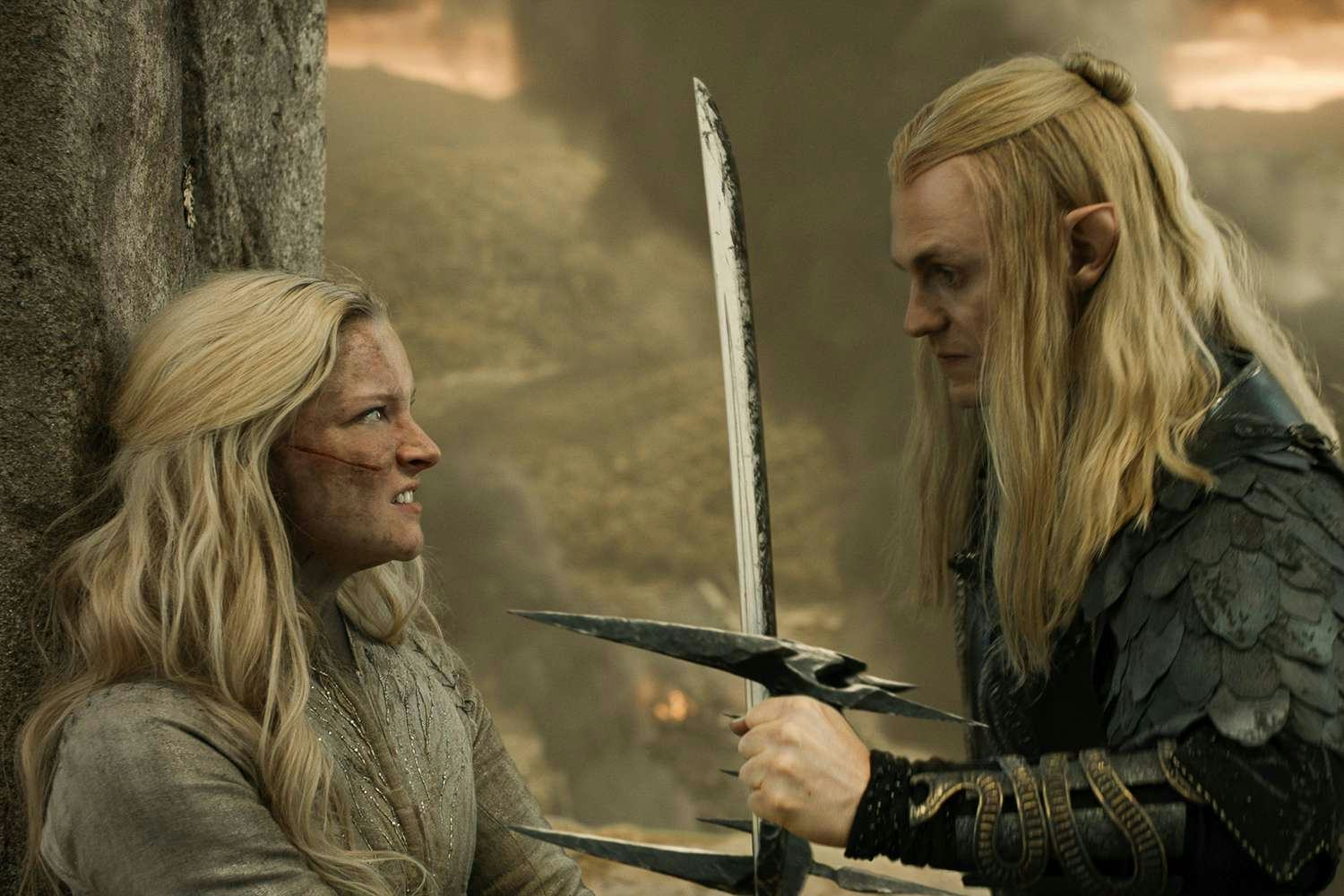
Now 32, Vickers has inhabited the role of the greatest evil in Middle-earth for five years. In that time, he says, “My life has changed hugely, but not in any of the fundamental ways of the things that really matter and things that I really care about.” Mostly what’s changed is his perspective — in and outside of the show.
In the opening moments of Season 2, for example, he got to revisit those raft scenes, this time with the knowledge that he was the Dark Lord in hiding, and this time in the production’s new home in England instead of New Zealand. “In New Zealand, we were in this huge water tank, just hundreds of meters wide with this huge scaffolding,” Vickers recalls. Compared to that, the tank in England was “probably 3 meters wide. I had to sit on the raft and get in the exact same position. They tried to make me look the same.”
Performing those scenes again, with the knowledge of his identity as Sauron, was very rewarding for Vickers. “It was really cool to be sat in that position and [have] that realization that it's Galadriel in the water, and all the implications of what that might mean,” Vickers says, admitting that when he first uttered Halbrand’s opening lines to Galadriel — “The tides of fate are flowing. Yours might be heading in, or out” — he didn't really understand it. “If you look back in the books, Galadriel says that line. I didn't realize it when I first read it,” Vickers says. “It was really cool to do that again, but with all the backstory.”
Though the dynamic between Galadriel and Halbrand was central to Season 1, some fans were disappointed that Clark and Vickers only shared the screen for mere minutes, at the end of Season 2. But with Rings of Power forging ahead to adapt Sauron’s conquests in Númenór and elsewhere, it doesn’t seem likely that Galadriel and Sauron would cross paths again. Vickers is aware that he’s one half of the show’s big selling point, and is also keen to share more screen time with Clark.
“I would love them to keep having interactions because they kind of embody the good and evil of this show,” Vickers says. “I think their dynamic is quite exciting for a lot of fans as well, and exciting for us as performers.”
“Who knows whether or not any of that will involve Galadriel, but I hope so.”
But whether we can expect to see more of Galadriel and Sauron, Vickers genuinely doesn’t know, but he holds out hope that even if they don’t physically meet, there could be another way to get together. “We're not bound by the rules that we are in our world. You see visions. There is this intangible element of magic,” Vickers says. “Sauron uses manipulation all the time, and this mind-warping that he does. Who knows whether or not any of that will involve Galadriel, but I hope so.”
And for those of us who revel in two rising actors committing to the ultimate battle between good and evil — so do we all.







